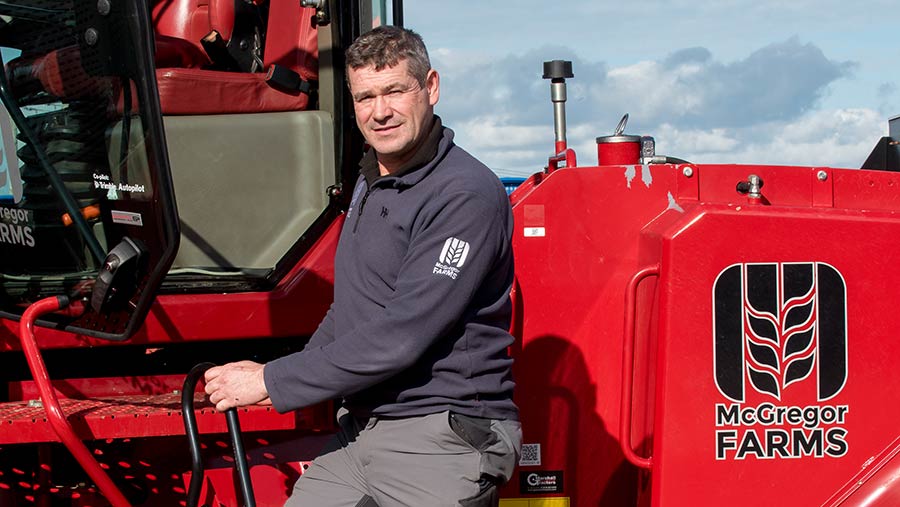Farmer Focus: Variety change ahead for clubroot-infected OSR
 © Angus Findlay
© Angus Findlay Despite mother nature’s best attempts to disrupt harvest, we are progressing well. Winter barley was safely gathered in by 21 July, with a good proportion of the straw baled before the weather broke.
Any straw left unbaled at that point sat in the field for almost a fortnight. While the weather break was frustrating at the time, it did allow the oilseed rape to ripen without us trying to force it.
See also: Farmer Focus: Spring cereal yields are disappointing
Winter barley yields were very slightly up on our five-year average, with six-row hybrids out-yielding our two-row conventional variety Tardis by a meagre 0.2t/ha.
We started oilseed rape harvest on the evening of 30 July, again rain stopped play and we didn’t restart until 4 August.
We then harvested all 763ha of oilseed rape pretty much uninterrupted, finishing on 9 August.
Yields on the whole were very good, except for a few fields affected by clubroot, which ultimately pulled our overall yield back 5% from our five-year average.
Winter wheat harvest commenced hot on the heels of the oilseed rape and has been fairly relentless since then, dodging showers being the name of the game.
At the time of writing we are 85% through and, despite some lodging, yields have been quite impressive – a full 5% above our five-year average, with some very high bushel weights, especially from Dawsum.
On the variety front, we will continue with the theme of 50% six-row hybrids and 50% two-row conventional for winter barley, with our hybrid area split between Kingsbarn and Thunderbolt.
We will change our conventional variety from Tardis to the new high-performing variety Caravelle.
Our oilseed rape area will once again be dominated by Aurelia, with an area of Attica, Turing and Expose.
The clubroot-tolerant variety Crocodile will be grown on known infected ground, with an area of Scorpion and Pledge.
We aim to sow all our oilseed rape by the end of August and are currently on track to achieve this.


